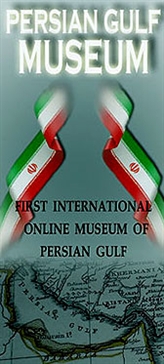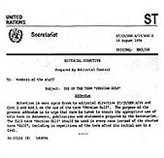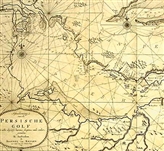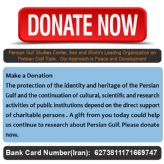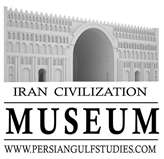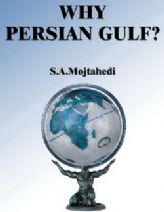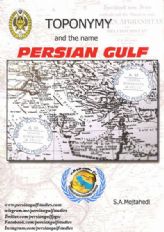Letter of Pirouz Mojtahed-Zadeh Ph.D. to FIFA
Date: 1/17/2015 10:19:27 PM

Letter of Pirouz Mojtahed-Zadeh Ph.D. to FIFA
Pirouz Mojtahed-Zadeh Ph.D.
Professor of Political Geography and Geopolitics
University of Tehran and
Formerly, Chairman: Urosevic Research Foundation of London/ Member of Geopolitics & International Boundaries Research Centre SOAS/ University of London/ Consultant of the United Nations University, Tokyo, Japan/ Consultant: MENAS Associates = International Boundaries Consultants
UK, 590 Field End Road, Eastcote/Ruislip, Middlesex HA4 0QZ
H. E. Ban Ki-moon 1 June 2013
Secretary General
The United Nations
New York
H. E. Joseph S. Blatter
President, Federation of International
Football Associations
Your Excellences,
The UAE state-controlled top-flight football league announced on Sunday 27 May 2013 that it was to be renamed the next season as the Arabian Gulf League, a name that can only propagate UAE’s anti-Iranian racist politics of changing the name of the Persian Gulf, and it can’t be considered as anything but a highly charged racist affront that would bring chaos to international football games in the face of the possibility of a legitimate Iranian reaction in officially announcing boycott of any football club playing with this league in international games.
This ill devised and detestable move on the part of the government of the United Arab Emirates, a full member of the United Nations for more than forty years causes both; disrepute to FIFA by dragging politics of racism into international football, while bluntly defies the repeatedly announced UN directives (UN AD311/1 GEN, dated 5 March 1971; UN LA45. 8. 2(C), dated 10 August 1984; ST/CS/SER. A/29, dated 10 January 1990) on the necessity of maintaining the correct name of the Persian Gulf for the waterway that separates Iranian Plateau from the Arabian Peninsula.
This act of racism reveals the level of political maturity of the state in the United Arab Emirates, after 42 years of its full membership as an independent state of the United Nations shows how long it still has to go to reach maturity of a well - established state.
The false name for the Persian Gulf was first concocted by the Iraqi Baath Party in late 1950s. With the rise into power of Saddam Hussein in the second Baath regime (1968 – 2003) a long-lasting anti-Iranian propaganda campaign was launched which was to become the central theme of promotion of Baath philosophy. This was an expected geopolitical strategy contrasting Iraq’s demography. Similarly, it is noteworthy that like the emirates of southern shores of the Persian Gulf, Mesopotamia had formed parts of what was the Iranian federative system (Persian Empire) for the greater part of the previous three thousand years. These historical and geographical factors did not offer a comfortable prospect to the former Baath ideologues, as it does not offer the UAE any sense of complete Arab identity. Hence, the UAE today, like Baathist Iraq in the past find no other way but to resort to tactics of racist nature such as changing historical names of geographical places in order to shed all layers of their cultural image that links them to Persian civilization (1).
The Baath policy of nation-Building was not to follow the path of a normal process of settling the crisis of identity. All philosophers and thinkers of political, geographical and social sciences, including famous Arab thinker Edward Said, in his famous book Orientalism (2) concede that one normally constructs one's identity by comparing the notion of 'us' with the notion of 'them'. But in the case of the Baath party of Iraq, this mechanism worked differently. In their theory Baath party was to construct an extreme form of Pan-Arab identity for Iraq by destroying the identity of 'them', which in this case was represented by Persia (Iran). This was because what constitutes Iraq now had been a part of the Iranian federative system known in the West as Persian Empire for centuries both before and after Islam. To the Baath party thinkers, Cyrus the Great's conquer of Babylonia in the mid six century BC was not to be forgiven because, no matter how emphatically the holy books of the sematic religions (Islam, Christianity and Judaism) condemned Babylonian tyranny and its inhumanity, to the Baath of Baghdad Babylonia was an Arab state that represented Iraq's glorious past upon which Iraq's new Baathist identity had to be constructed.
It was on the basis of this peculiar way of reading history that a mind-boggling anti-Iranian (anti-Persian) campaign began which lasted for 35 years, causing the eight-year war of attrition with more than one million people dead, and the idea of changing historical name of the Persian Gulf become a major point of conflict with Iran.
There are many indications that Iraqi Baath’s brand of ideology for nation-building by re-writing the history and revising the geography of the region that has devastated Arab-Iranian relations is being questioned in the Arab world. Yet, this process appears to have started in a reverse direction in some Arab parts of the lower Persian Gulf. In addition to rejecting many calls by Arab scholars and Arab newspapers asking Arabs to abandon the campaign of changing the name of the Persian Gulf (3) for instance, the UAE Government has increased its ant-Iranian campaign. They have started to return sea-going vessels from their shores if happened to produce their cargo-bill bearing the name ‘Persian Gulf’; they hugely increased financial support for any journalist, academic, or politician in the West that would adopt the term Arabian Gulf instead of the historical name of the Persian Gulf, the 2005 case of geographical controversy by National Geographic was an example; they began to support any activity that aimed at hurting Iran, the case of financial support for the creation of the Taliban regime in Afghanistan and its anti-Iranian activities in late 1990s and early years of the 2000s is one example and its critical stance, encouraged by US Secretary of State Condoleezza Rice, against Iran’s nuclear energy program and attempts to formulate a pan-Arab opposition to it on the argument that close proximity of Iran’s nuclear sites would pose a danger to the Arab countries of the Persian Gulf in the events of accidents, is another example. The UAE in putting forward this argument ignores the fact that they have never criticized Israel’s nuclear arms program and the danger of Israeli nuclear sites proximity to the “brother” Arab nations of Lebanon, Jordan, Syria, and Egypt. Moreover, scholars from UAE express misgivings over Iran’s persistence on enriching uranium up to 20% of purity, hinting that it is for strategic use of her nuclear program. Often the fact is ignored that for production of nuclear weapon enriching uranium at 95% of purity is needed. Furthermore, the fact is ignored that under the impact of severe economic sanctions, Iran suffers from shortage of many essential items of consumer’s goods, including medicines and for the domestic production of which she needs enrichment of uranium of at least 20%.
And finally, the controversy over the naming of the Gulf separating Iranian Plateau from the Arabian Peninsula, though quite old, caused new frictions among Arabs of Peninsula and the Iranians in the first decade of the 21 century. In addition to rejecting masses of documents from Arab scholars and Arab newspapers listed in many Arab sources as well as my book on the name of the Persian Gulf (4), advising Arab societies against use of Arabian Gulf instead of Persian Gulf, the UAE Government, for example, increased its campaign to change the historical name of in this geographical place in recent years.
References
1- Mojtahed-Zadeh, Pirouz, Arab Iranian Relations in the Persian Gulf a geopolitical perspective, paper to the international conference on: Arab-Iranian Relations in the (Persian) Gulf – Doha Qatar, 1st & 2nd December 2012
2- Edward Saeed, Orientalism, Vintage Books, New York 1979).
3- See for example the following instances:
Magdi Omar's interview in Al-Ahram of Egypt on 21/6/2001
Abdul Monim Saeed in Al-Ahram of 23 December 2002.
Al-Anba' daily of Kuwait wrote on 7 October 2003
Mohammad Abu Ali in Al-Sharq al-Owsat of London 16/12/2004
Abd or-Rahman Rashed in Al-Sharq al-Owsat of 1/1/2005
Sad Ibn Taflah former Kuwaiti Minister of Culture and Information in Sharq al-Owsat of 1/1/2005 and in 15/1/2005
Dr. Hesham Al-Asmar in Al-Ahram of Egypt 18 January 2005
Dr. Yaseen Suwaid in An-Nahar of Lebanon and Morocco on 7/1/2005
Dr. Foad Haddad in The Qods al-Arabi of London on 26/1/2006
Sad Ibn Taflah former Kuwaiti Minister of Culture and Information in Sharq al-Awsat of 4/3/2006.
4- Mojtahed-Zadeh, Pirouz (1383 = 2004), Historical Geography of the Persian Gulf, Nam-e Khalij-e Fars dar tool-e Tarikh, Sayeh-Roshan Publication, Tehran
